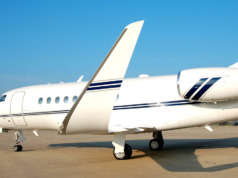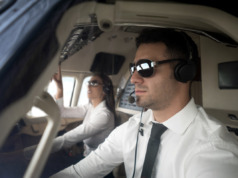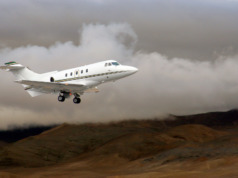One of the benefits of business aircraft is their ability to readily operate across international borders and operate in other States (countries) with relative ease. Since 1947, the International Civil Aviation Organization (ICAO) has made this possible by creating and promoting comprehensive Standards And Recommended Practices (SARPS) to the 192 State signatories on the treaty covering these issues.
Each State is required to operate to ICAO standards if at all feasible. They do so by adopting these standards and incorporating them into their air regulations or, if they choose not to do so, by notifying ICAO of the differences they have taken with the standard. ICAO then publishes these exceptions.
ICAO standards prevail throughout
the world with only slight variations.
However, the differences filed may be difficult for individual operators to determine only by using ICAO documents. Since not all applicable details may be included, other methods must be used to ensure that you are operating in accordance with standards different from ICAO’s. This determination may be made by consulting with a State’s Aeronautical Information Publication (AIP), regional sections of international navigation providers’ publications, or by hiring an international flight planning service.
ICAO standards prevail throughout the world with only slight variations. However, changes effective in 2010 for privately operated large and/or turbojet powered aircraft, have not yet been implemented by many States. These significant items include :
- Safety Management System (see BAA April 2014 for more details on SMS)
- Operations Manual
- Flight crew training program
- Maintenance control program
- Minimum Equipment List
- Fatigue Management System
Since these changes likely will be implemented by most States during the next two to three years, it is imperative for all international operators of business jets to start now to comply with these new standards.
Currently, only Bermuda and the Cayman Islands require adherence to all of the new standards and have the authority to ramp check itinerant foreign aircraft to ensure compliance. The European Aviation Safety Agency (EASA) has instructed its 32 members to conform to the new standards by October 2016; a number of these States have indicated that they will do so before then.
Significantly, the US has implemented few of these requirements, with little indication that it intends to take further action soon. For N-registered aircraft flying even to Canada or Mexico, this noncompliance could cause difficulties.
Fortunately, there is an alternative. A program known as the International Standards for Business Aircraft Operations (IS-BAO) is an industry code of practice that can be used by business aviation operators of all sizes worldwide to manage the safety, security, efficiency, and effectiveness of their organizations. Developed by the international business aviation community for its own benefit, IS-BAO incorporates a safety management system as its core, and is based largely on ICAO standards and recommended practices.
Incorporating IS-BAO into a business aviation operation demonstrates conformity with international regulations while accommodating the operational needs of the company operating the aircraft. Both Bermuda and the Cayman Islands accept an IS-BAO registration as proof of meeting their requirements and EASA has indicated its likely willingness for IS-BAO to be used soon as an acceptable means of compliance to its standards.
In addition to satisfying many safety and regulatory compliance issues IS-BAO also:
- Establishes an operational management system
- Provides measures of effectiveness and efficiency
- Increases passenger and company confidence in business aviation operations
- Reduces aircraft insurance premiums
- Promotes a positive safety culture
More than 700 business aviation operators and aircraft charter companies worldwide are now registered with IS-BAO. These numbers will likely grow as States implement recently released ICAO standards for the business aviation community. BAA
John Sheehan, the International Business Aviation Council Audit Manager, works with the IS-BAO standards program. An experienced military and civilian pilot, aviation manager, and published author, he’s worked extensively with the International
Civil Aviation Organization.




